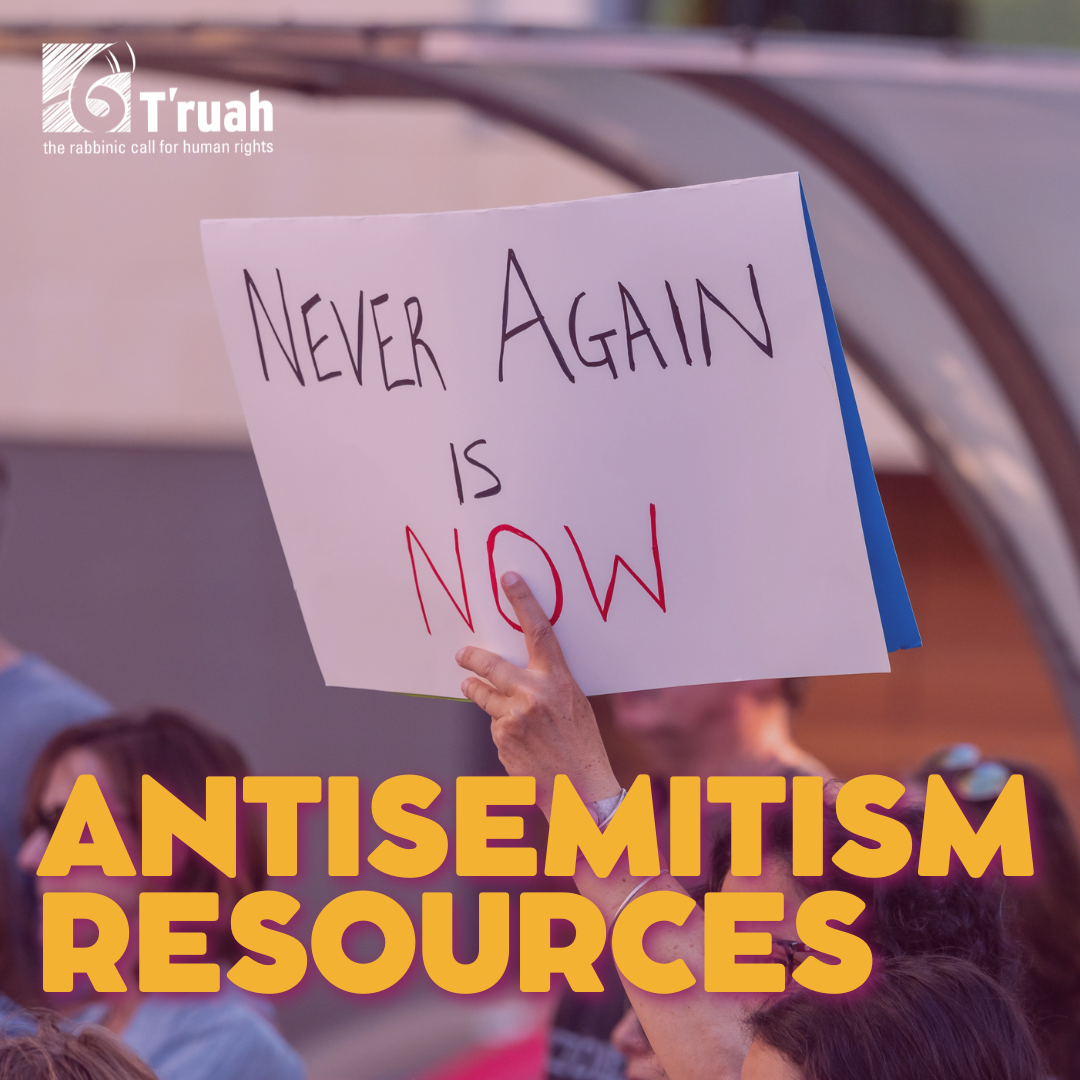“Love your neighbor as yourself.”
-Leviticus 19:18
T’ruah is committed to standing against antisemitism in all its manifestations. As antisemitic incidents increase at an alarming rate, rabbis and cantors are often on the front lines, facing antisemitic flyering, graffiti, and vandalism; harassment and threats; and in some cases, violence. Those who wear identifiably Jewish clothing have become targets for antisemitic attacks, and the result is that Jews are increasingly concerned for their safety on the street and in the synagogue.
Education
Our approach to combatting antisemitism begins with education. It is increasingly clear that there are widespread misperceptions about antisemitism, and even about Jews and Judaism. Even among Jews, not everyone agrees on what constitutes antisemitism. Our educational resources and trainings aim to fill that gap, so that both Jews and non-Jews feel confident they can identify, name, and effectively respond to antisemitic incidents.
Fighting antisemitism in public and private
There is no one-size-fits-all response to antisemitism. While public officials must be called out for antisemitic speech, T’ruah also works privately within our coalitions and partnerships to address antisemitism — and other forms of bigotry — through conversation and education.
Valid criticism of Israel or antisemitism?
Our expertise includes defining the sometimes muddy boundary between criticism of Israel and antisemitism, which we explore in depth in our A Very Brief Guide to Antisemitism. While it is certainly true that not all criticism of Israel is antisemitic — we criticize Israel’s policies every day — it is also true that criticism of Israel can sometimes devolve into antisemitism.
That said, we refuse to allow fear of antisemitism to lead us to become xenophobic or closed-off. Our approach to addressing antisemitism is deeper and broader relationships with other groups that have been marginalized, striving together towards collective liberation.
Our work includes:
- Creating educational resources for rabbis and cantors and for the public, such as our A Very Brief Guide to Antisemitism, so that Jews and non-Jews have the tools they need to better understand and recognize antisemitism when it happens.
- Delivering staff-led trainings in antisemitism for Jewish and non-Jewish organizations, as well as to elected officials.
- Developing a training in “Bystander Intervention to Stop Antisemitism” with Right To Be, so that ordinary people know how to intervene if they witness antisemitic harassment or violence. More than 700 people have completed this training.
- Advocating for sound policies that combat antisemitism and against policies that equate fighting antisemitism with suppressing criticism of Israel — policies that only make it harder to identify and stop actual antisemitism. For more on this topic, read about our campaign for Free Speech and the Right to Boycott.
- Supporting our rabbis and cantors as they encounter antisemitism in the course of their work, including through Communities of Practice, one-on-one coaching, and by creating opportunities to gain support from others in our network who have experienced similar incidents.
Read more about our approach to working in coalition here.


